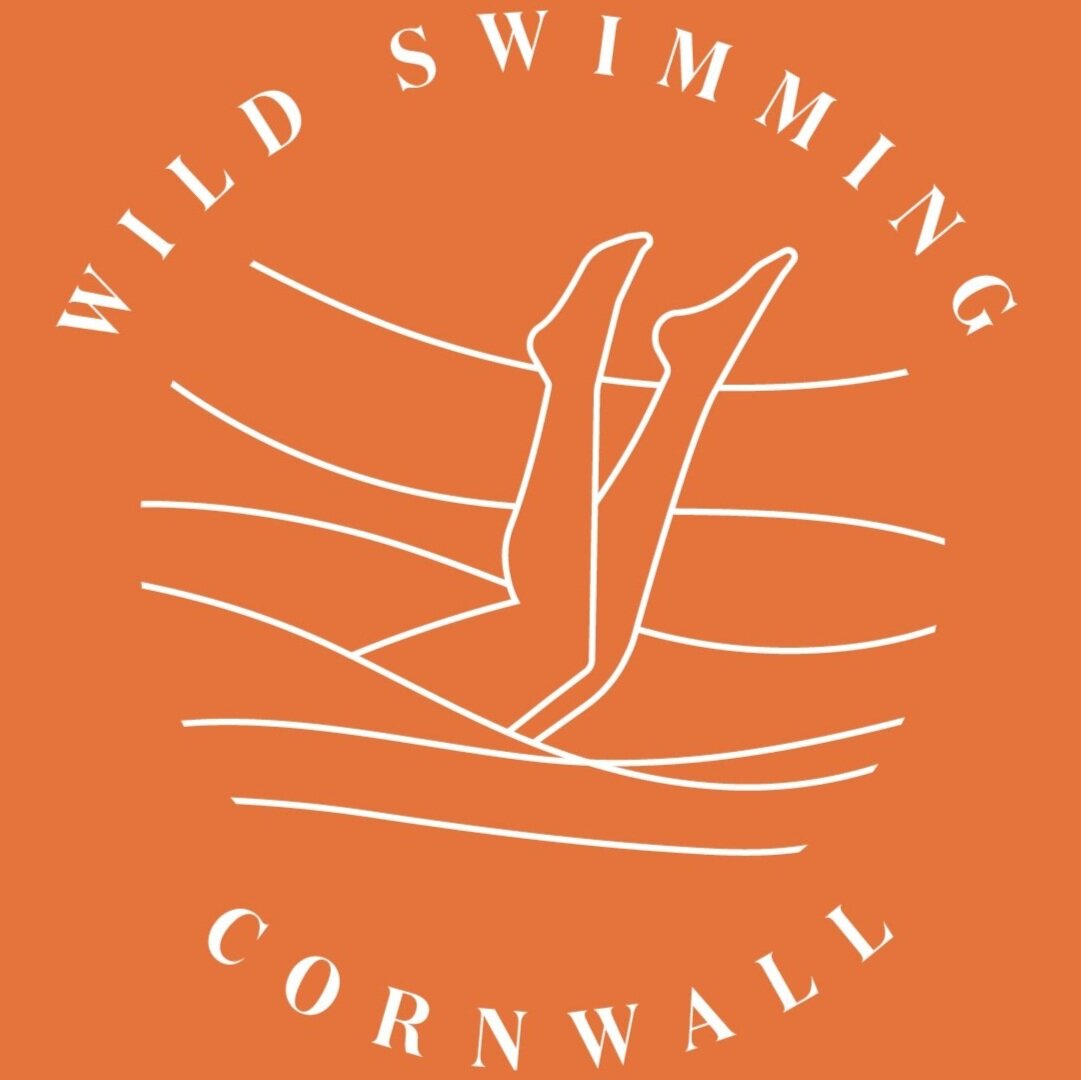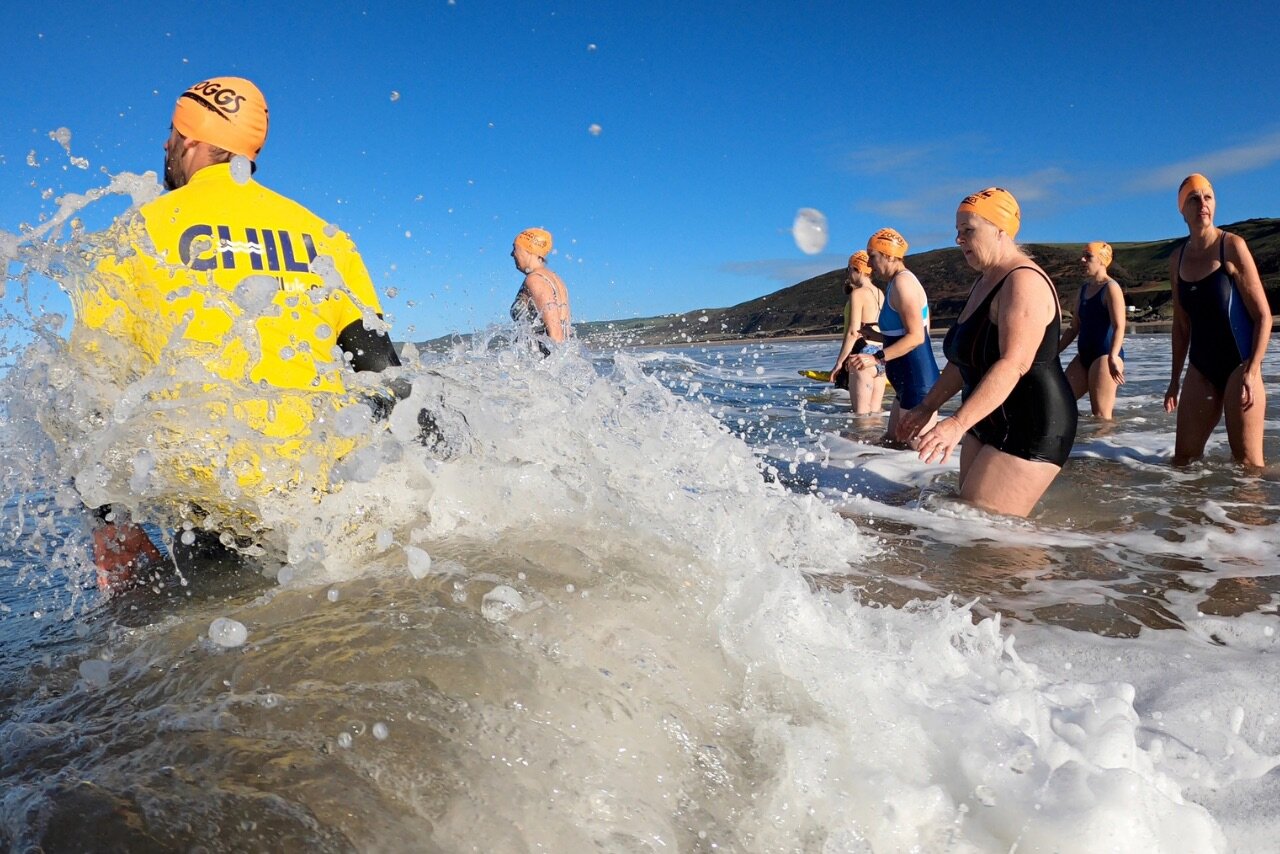Chill UK and their mission to introduce prescription cold water swimming
Founded this year, Chill Therapy CIC is a non-profit providing cold water swimming sessions to help people manage anxiety and depression. So far, they have set up swim hubs around the country, taken NHS staff on cold water therapy courses and have been collecting quantitative data on cold water swimming. We spoke to founder Mike Morris to learn more about this amazing initiative, which is taking us one step closer to social prescription swimming.
Words by Lydia Paleschi
It’s no secret that cold water swimming has a huge number of health benefits. Many people in the UK have been using it as a means to regulate physical and emotional health for some time, which begs the question – why isn’t it offered on the NHS as an alternative to prescription medication and therapy? Anecdotal accounts attest to the miracle-like qualities of cold water in combating physical ailments such as inflammation, improving mood, and reducing and even alleviating symptoms of depression and anxiety, yet despite this, it’s still not offered as a recognised treatment.
Why isn’t cold water swimming socially prescribed in the UK?
Because of a lack of quantitative data – whereby the impact of cold water swimming is tested and observed on a large number of people – the evidence is not yet strong enough for cold water swimming to qualify as an alternative prescription. Thankfully, Mike Morris, founder of Chill tells me this is precisely what the non-profit is working towards changing. “We want to put proof behind the pudding – to prove to people and the NHS that cold water swimming is an effective way of controlling and helping people with anxiety and depression.”
Chill are working towards getting more people into the water across the UK
Cold water swimming hubs
After discovering the joy of cold water swimming for himself, Mike knows all too well how beneficial it can be. However, it wasn’t until he set up the Exmoor Open Water Swim that he really began to notice the extent of it. Mike tells me, “It was amazing how many middle aged ladies were appearing at the finish line without wetsuits. Not only were they surviving the cold conditions, but they were top of their game – so enthused and buzzing.” Inspired to learn more, Mike began reading about cold water immersion and came up with the idea to get more people – including anyone over the age of eighteen – into the water.
Since then, Chill has set up swim hubs around the county and facilitated cold water swimming programmes for groups of people with depression and anxiety. Amongst them has been a recent research programme with 160 NHS workers in London and Cornwall. Based on a watered down version of surf life saving, interspersed with knowledge on health benefits and safety precautions, the programmes aim to build participants' confidence in the water whilst also allowing them to soak up the health benefits of cold water immersion. When I ask what the programmes entail, Mike tells me, “We’ve got a load of tools in our toolkit. In an 8-week course we cover duck diving, floating, breathing techniques and swimming increasing distances, amongst other things.”
Not only are the programmes succeeding in getting more people into the water and enjoying themselves, but they also allow Chill to collate the quantitative data needed to encourage the NHS to prescribe cold water swimming in the future. Participants fill out a questionnaire before, after and three months after completing the course, which allows researchers to gather information on whether the programme is helping or not. Mike tells me that the response so far has been “unbelievable” with many participants saying it has given them focus, or has even been “life-changing”. This data will later be published in a report and provide valuable evidence in favour of making cold water swimming available as part of social prescribing.
Making socially prescribed cold water swimming accessible
Whilst it is possible to experience the benefits of cold water swimming as individuals, Mike says that feedback is showing that the hubs work particularly well because “the social side of the swim is really important”. So far, there are seven Chill hubs – in Kent, Brighton, Worcestershire, Bournemouth, London, Cornwall and Devon. However, hopes are that there will be many more in the future. When I ask Mike how he intends to do this, he explains that “the idea is for people in the local area to set up hubs with Chill’s support”. Through a combination of coaching courses led by olympic champion open water swimmer Keri-anne Payne and additional training, each hub will be run by a coach and qualified beach lifeguard. Eventually, it is hoped that there will be enough hubs around the country that anyone suffering from depression or anxiety can easily access a cold water swimming programme.
The social side of swimming has been recognised as an important part of accessing Chill hubs
It’s safe to say that Chill are doing plenty in their efforts to improve the data available on cold water swimming, and in encouraging the NHS to add it as a community referral option. We’re in huge support of this and think that socially prescribed cold water swimming can’t come soon enough.
When it comes to funding the courses, Chill has managed to secure some support from the NHS and Sports England, but donations make a huge difference too. If you’d like to support the initiative you can do so via the fundraiser. For those who wish to participate in a course, contact your nearest hub.
Chill is also on Facebook as @bravethechill.
If you enjoyed this blog, why not sign up to our newsletter?
And if you know someone else who would enjoy it, please share it with them via email or social media.




